by Sophie McCabe
The autumn leaves are falling, the sunlight is (sometimes!) shining through the trees in Merrylee Primary’s Urban Jungle, and the children and their teachers continue to explore new ways of using drama, stories and creativity to explore outdoor learning, nature and sustainability.
We’re almost six weeks through Merrylee’s “Out to Play” journey and our distant friend, Taika, of the Amazon Rainforest’s Awá Tribe, has continued to write to the children weekly, telling them stories of her life in a nomadic hunter-gatherer tribe and asking about how issues she faces compare to those of the children in Merrylee.
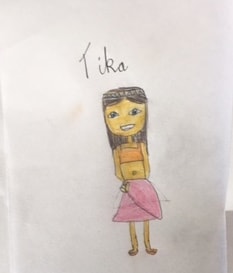
Leading up to this, we’ve also had many imaginative nature journeys since our last blog. To mention a few highlights, we’ve had classes using drama to compare Scottish weather, wildlife and classes exploring, the water and under the sea creatures, from the Amazon to the Clyde, using drama techniques including mime, frozen image, thought tracking, storytelling, multi-use-props, extended improvisation, puppetry and narration.
Week four saw us exploring issues linked to the story of plastic, consumer culture, litter and thinking about using recycled, upcycled items to create puppet creatures. The children initially looked at their piece of bubble wrap, plastic packaging or old newspaper with confusion, but as we tried some puppetry exercises we eventually had imaginary ‘rubbish’ creatures and even full puppetry scenes coming to life.
It was great to see that using puppetry and imaginative play with a low cost and supposedly useless object had worked:
“Can we take these [pieces of recycling] home to play with?”
“In the Amazon Rain forest the children wouldn’t have all the toys we have, but look how much fun with just something that would have been thrown in the bin”.
In week five we had teachers taking the reigns in ‘Out to Play’. We have had a wide range of inspiring styles and topics explored in the teacher-led sessions. The teachers, as experts in their classes, showed how well they cater to the age and stage of their class while meeting individual learning needs. Merrylee’s staff displayed not only their passion for outdoor learning, but showcased their drama, storytelling, and creative learning tools too. It was also fantastic to hear that many classes had linked their ‘Out to Play’ session into classroom learning.
A very brief summary of the teacher-led “Out to Play” sessions:
Primary 1s loved exploring outdoors and did well at working in groups to create recycling musical instruments and rhythmic dances inspired by Awa Tribe celebrations, which they performed for an audience while cementing learning about looking after our environment.
Primary 3/2 imaginatively explored endangered animals of the rainforest (and even journeyed inside a rainbow parachute!) using storytelling, drama, soundscapes, and physical theatre and props.
Primaries 3a and 3b explored the seasons, trees and harvest time using mime, movement and teachers used storytelling to bring alive the world of an Orangutan, challenging the class to perform sections of the story to the group with teachers narrating the story.
Primary 4/5, 5a and 5b enjoyed their teachers’ expressive and interactive outdoor storytelling of ‘The Awongolema Tree’, with the classes showing their performance skills by embodying different climates and biomes through physicality, freeze frame and facial expressions.
Primary 4 had fun exploring using different facial expressions and exaggerated movement to convey emotions, imaginatively bringing to life local creatures found in Merrylee’s Urban Jungle, which they had been studying in class.
P6a Got right into character for an extended improvisation around the effect of commercial deforestation on indigenous people and animals, building shelters and using ‘teacher in role’ (with their teacher playing not one, but three characters!) plus ‘thought-tracking’ and ‘thought tunnels’ to explore all sides of the complex debate.
P6b explored the important issue of deforestation while flexing their confident speaking, debating and interview skills. They then used improvisation-in-character to stage a Skype call to the Awa Tribe to hear their perspective on the issue, which again showed the maturity and empathy of the class.
Merrylee’s ‘Wonder Boxes’ have also filled up with the children’s records of our “Out to Play” sessions, to name a few we’ve had: handwritten replies to the Awa Tribe, stories we wrote inspired by natural objects , descriptions of ‘Nature Superhero” characters, drawings of creatures (real and imaginary) that we saw on our explorations, lessons we learnt about food waste, and many other written or drawn responses.
In week six we’ve heard how the Awa Tribe hunt for, and share food with their community and welcome outsiders. Using storytelling, interactive and drama we explored issues around food, with younger classes thinking about our favourite fruit and vegetables and creating stick puppets for next week. The Folk tale “Stone Soup” has inspired most of the sessions in Week 6 and we used the ‘Story Square’ method, helping older groups bring the story to life using Theatre in the Round, mime and learning to take direction.
We created mini scenes with younger groups, thinking about over-consumption and how fortunate we are in Glasgow compared to many other places in the world. I really enjoyed seeing how the older classes created effective and catchy TV Style advertisements and news reports, communicating facts linked to food waste from bio-fuel to global warming to simple measures you can take at home to waste less food. These adverts really showed the progress of the children’s confidence in devising and performing using styles including narration, freeze, scenes and using humour and repetition to make a point. I was blown away by some of the empathy and perception shown by the children during discussions about poverty, food waste, community and sharing. This also led to some insightful thoughts from the children on what community and sharing means in 2017:
“In the modern day we use devices to connect to each other, but back in the old days you would connect in real life”
(p4/5)
“This story taught me to be kind and share.”
(p3)
I’m very much looking forward to recapping our learning and sharing some final thoughts on week seven and meeting the primary 2 and 7 classes next term!
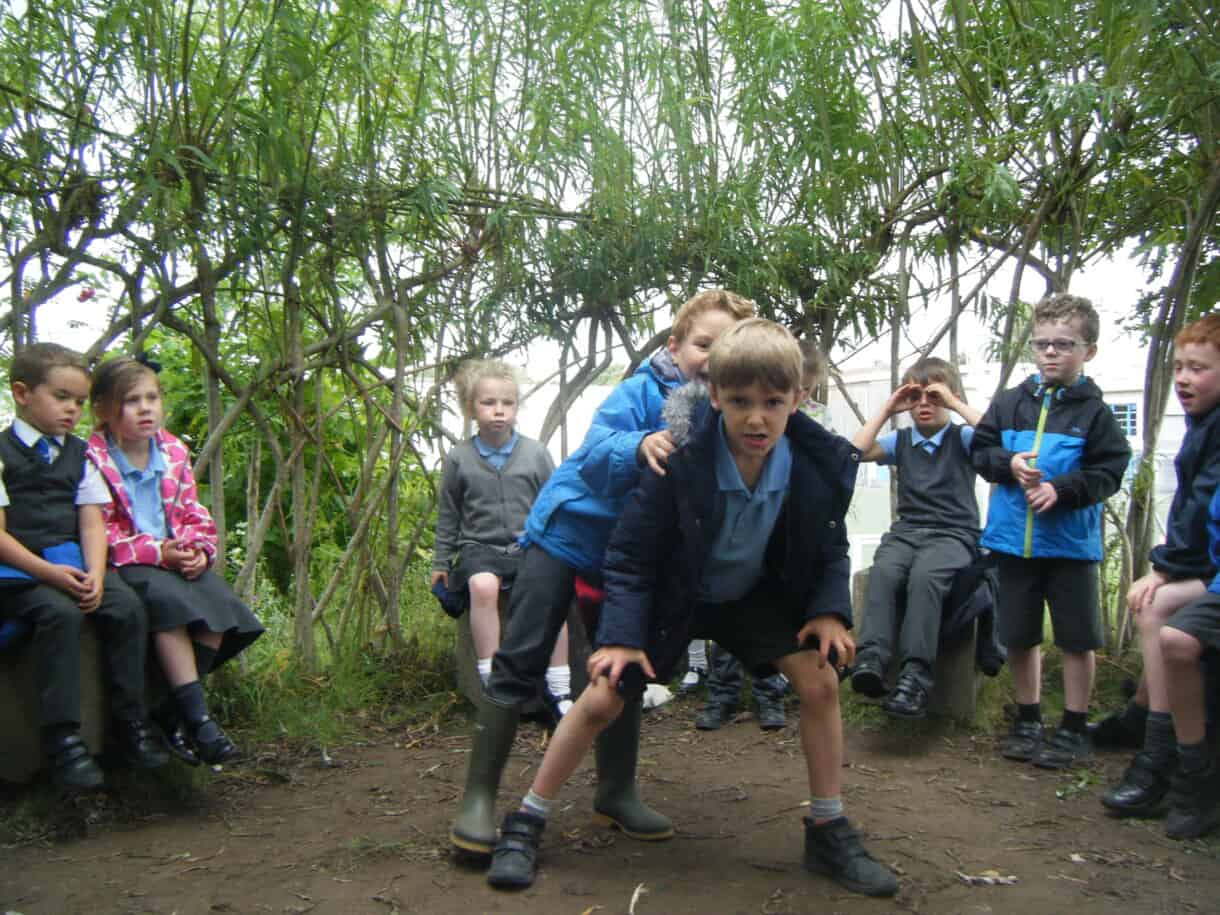
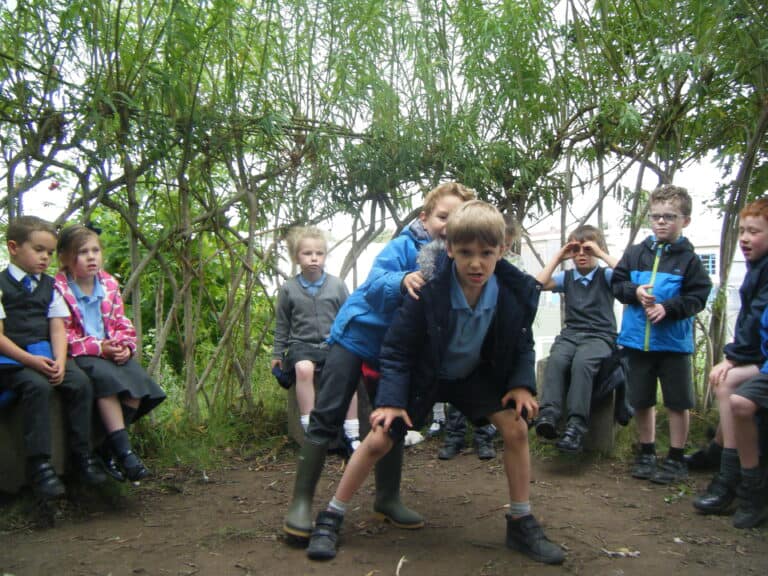
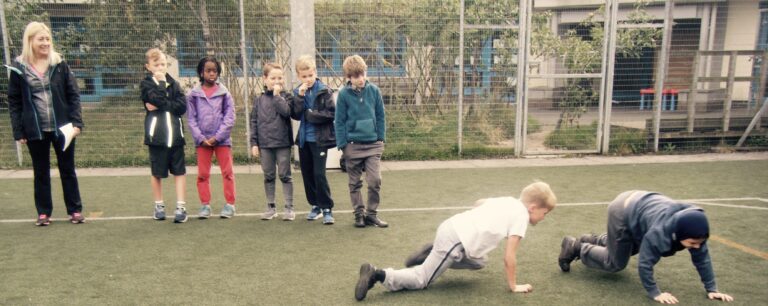
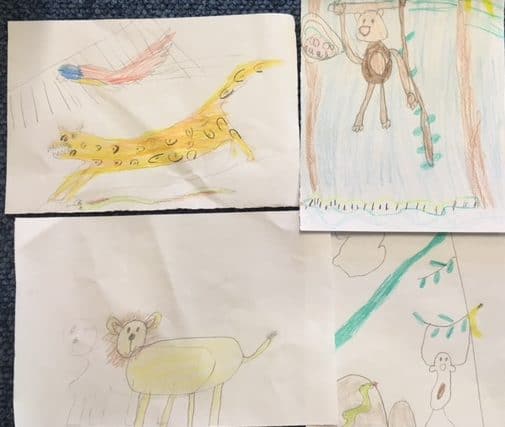
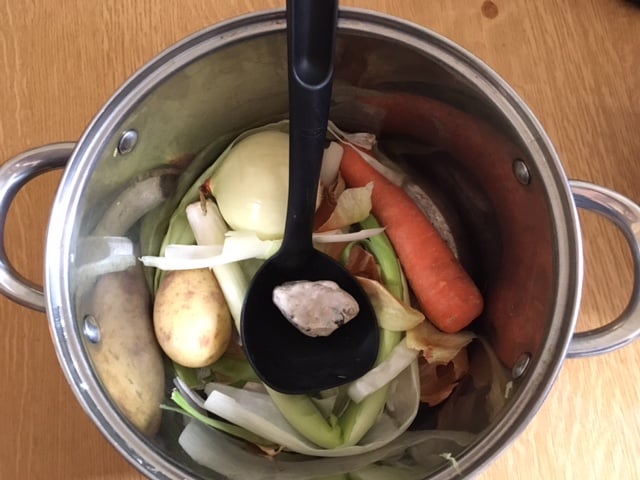

![glasgow city council logo [black] Glasgow City Council logo](https://ecodrama.co.uk/wp-content/uploads/2023/12/glasgow-city-council-logo-black.png)
